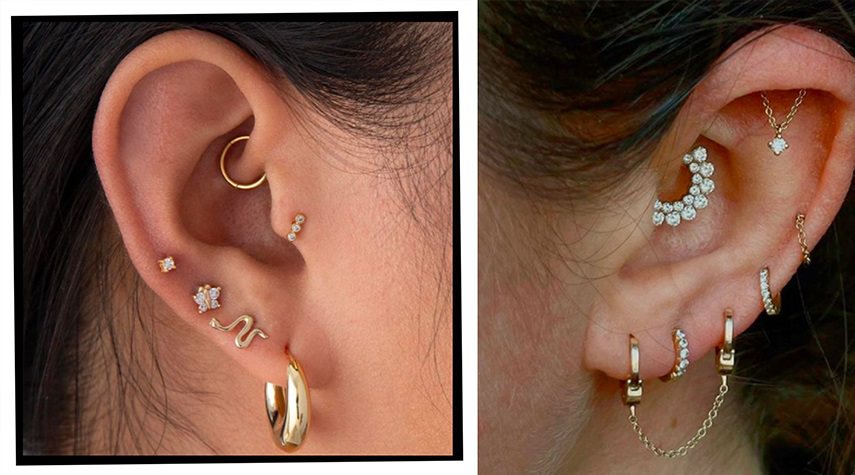You may have given some thought to getting a Daith piercing for your ear if you’re seeking a method to adorn your ear that is both understated and distinctive. You may be considering getting a Daith piercing for medical reasons as well, given that there is some evidence, though contentious data, that these piercings may also provide relief from anxiety and migraines.
Regardless of the motivation behind your curiosity, you most likely want to know how Daith piercings will feel and whether or not they will hurt. Daith piercings go through the cartilage fold that is located at the point where the outer and inner ears meet.
Daith piercings mean that they do not dangle from the lobe of the ear. This portion of the ear is broader and more curled than the rest. Because of this, it is a delicate area that may be tough at times to pierce.
It is generally agreed that getting Daith piercings is one of the most time-consuming types of ear piercings. In addition to this, the healing process is somewhat drawn out, during which time there is an increased danger of infection.
Read more: Best Ear Piercings To Keep You Ahead In Terms of Style
How Painful Are Daith Piercings?
Even though they are not the most painful kind of piercing you can receive, Daith piercings will nevertheless give you some agony both during the surgery and after it has been completed. Pain is felt uniquely by each individual. The majority of individuals who undergo Daith piercings describe the sensation as being similar to a strong arrow being thrust into the ear.
It takes around six to nine seconds longer than it does to do most other types of piercings, which may cause the discomfort to last for a longer period. The majority of individuals who have Daith piercings say that the pain is dull and aching for a few days after the procedure is performed. It’s possible that your Daith piercing may be sensitive to the touch for many months after you have it done.
Easing The Pain Of Daith Piercing
Even though it’s common knowledge that Daith piercings are among the most painful sorts of body piercings, there are a few things you may do to lessen the suffering they cause.
1. Before/During Piercing
If you are concerned about the level of discomfort you may experience during the piercing process, you may want to suggest to your piercer that they apply a numbing lotion or spray. You may also numb your ear yourself in advance by using a numbing lotion that you can get at home.
Have a full night’s sleep the night before you get your piercing, and don’t get your piercing if you’ve been drinking alcohol. These are just two of the many pain-relieving strategies that may help.
As a means of diverting your attention away from the discomfort associated with getting your piercing done, you may find it helpful to listen to music, concentrate on controlling your breathing, or engage in conversation with the piercer.
Read more: Beginner’s Guide To Septum Piercings
2. After Piercing
Aftercare is what will prevent infection and keep your piercing from appearing bad after it has been done. Because doing so might raise your risk of infection or discomfort and lengthen the time it takes to heal, you should avoid twisting, turning, rotating, or sleeping on any of your piercings.
It is recommended that you do not sleep on them and that you wipe them with saline once or twice a day. After obtaining a piercing, it is recommended that you stay away from any bodies of water (such as bathtubs, swimming pools, and hot tubs) for anywhere between six and eight weeks. Also, keep harsh chemicals like soap, Peroxide, Neosporin, rubbing alcohol, and bactine away from your new piercing so it can heal properly.
How Long Does Daith Piercings Take To Heal?
The healing process for a Daith piercing might take as long as nine months. That is a very lengthy period, particularly when compared to the one to two months that it takes to heal from an earlobe piercing. During the time that it takes for the wound to heal, it is very normal for you to experience some redness, bruising, or pain. The pain associated with your Daith piercing should decrease with time.
When it is fully healed, it will no longer pain in the slightest. However, if you sleep on, touch, or snag your healing Daith piercing on a hat or clothing item, you may experience a return of the excruciating agony that accompanied the first piercing. As your piercing heals, in addition to giving you some amount of discomfort, you may also experience some itching. During the time that your Daith piercing needs to heal, you must refrain from playing with it and exercise patience.

